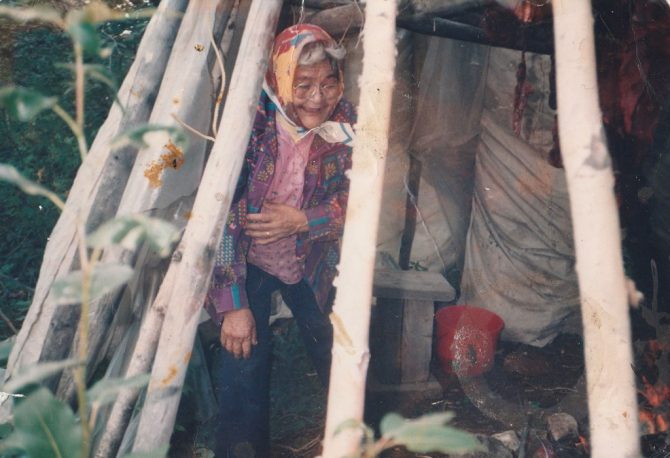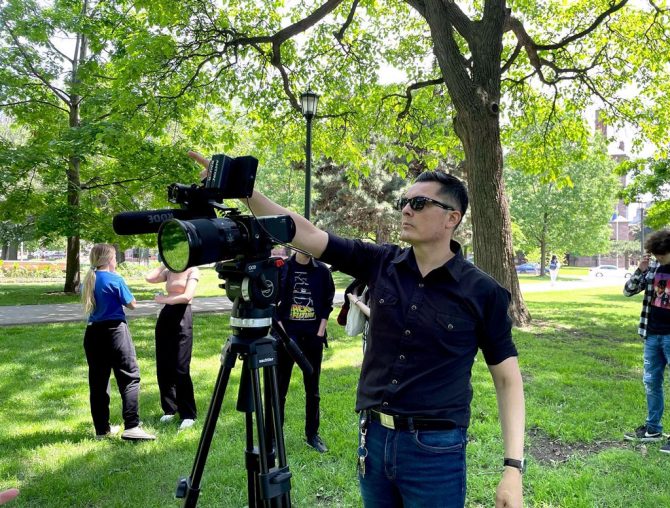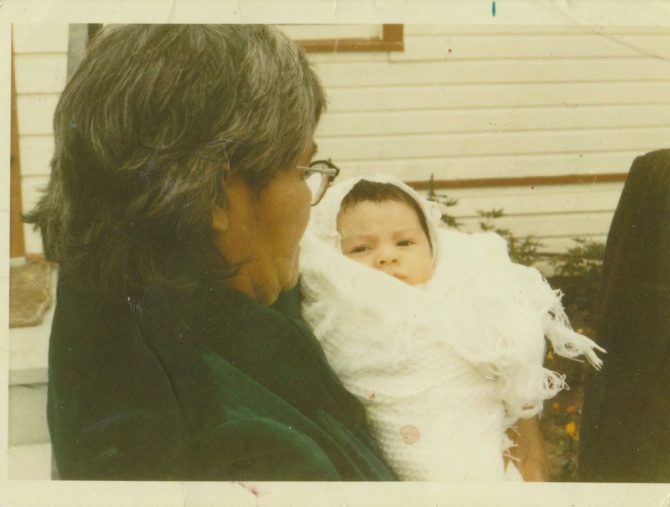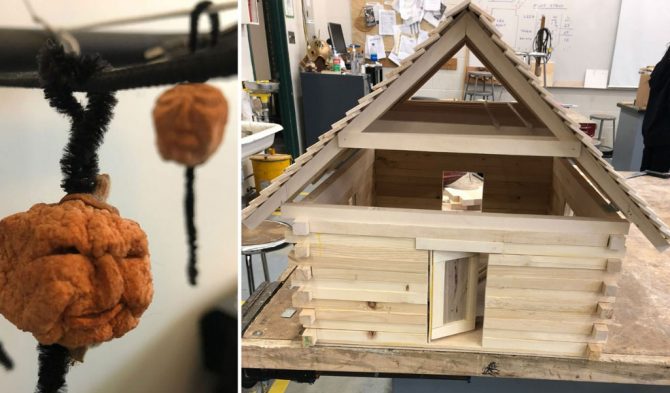Simeon Ross’s Stop Motion Short a Tribute to Indigenous Mother’s Resilience
A little over 65 years ago, on a blizzardy night in a remote cabin in the Northwest Territories, Simeon Ross’s mother heard something so strangely beautiful over the family radio, it helped sustain her through the many struggles she was forced endure in the days and years ahead.
At first, there was just the crackling of the turning dial, as her mother searched for a signal strong enough to cut through the bluster of the stormy night raging all around them. Then, a man’s voice broke through the static, speaking a language she’d never heard before and couldn’t understand. And then finally, the opening strains of a Mozart sonata filled the tiny homestead – the first classical music the then-five-year-old had ever heard.

It was a childhood memory that remained so clear, so magical in her mind, that she held it close over the 13 years that followed, as she, like her 17 older siblings before her, was shipped off to residential school. And it remained with her still in the many years of healing that followed – so much so, in fact, that when she relayed it to Ross a few years ago, he knew at once that he would make it into a film one day.
“I remember I was just visiting my mom one day and, out of the blue, she told me this story over dinner and I was just floored. It really resonated with me, and I said to her, ‘Mom, this could be a film,’” said Ross, a Class of 2019 Acting for Film, TV & Theatre graduate turned current Toronto Film School instructor.
“I just thought there was something about this isolation she described, and this moment with this voice cutting through the storm from Russia, and this classical music in the middle of a blizzard. I didn’t know how we were going to make it, but I knew I wanted to make the film.”

Fast-forward to today, and The Voice Hunter – a stop-motion animated short based on that night – is now in pre-production.
Co-written by Ross and his mother, C. Nineyeh, over the course of six months, the project is a full-on family venture – with Ross set to co-direct alongside his filmmaking partner, April Beatson; Green Boat Productions, the production company Ross founded with his dad, Colin, and sister, Micaela, set to co-produce; and Nineyeh herself signed on to narrate the film and hand-craft its stop-motion puppets.
“It’s been so great working on this film, especially with my mom, because she’s a super great writer,” Ross said of Nineyeh, a Dene woman who raised Ross in her hometown Norman Wells, NT – a small town north of the Mackenzie River where her parents made a living as trappers.

“As we were writing and rewriting the script for The Voice Hunter, she told me all these stories about her life that I had no clue about. You think you know your parents until you do something creative like this with them. It was an amazing experience.”
Lauding Nineyeh for her resilience in the face of adversity, Ross said his mother ultimately overcame the trauma of her childhood spent in the residential school system and went on to become not only a beloved teacher and vice principal herself, but also a world-class cross country skier whose dreams of Olympic gold were sidelined only by her pregnancy with him.
“She’s a really sweet, wonderful lady, who was a superstar with the kids. For all the stuff she went through, she ended up being a guiding light for a lot of children,” Ross said, noting that, in writing The Voice Hunter, it was important for him to acknowledge and reflect on his mother’s residential school experience, without dwelling on the specifics.
“It’s sad, in a way, that the film revolves around this beautiful moment she got to live before all the misery and suffering that soon followed. But, at its heart, it’s a story about survival and being strong and getting through hardships.”

With the script for The Voice Hunter now finalized, a miniature cabin now being constructed by a carpenter friend of his mom’s, and the puppets being crafted by Nineyeh herself, Ross said his attention is now turning to building a package to apply for both Indigenous and non-Indigenous grants and funding to get the film made.
His hope, he said, is to start shooting as soon as possible. In the meantime, he’s watched plenty of YouTube tutorials, visited the stop-motion animation studio of award-winning Indigenous filmmaker, Terril Calder, to get some tips, and begun experimenting at home with his own equipment.
In the end, his ultimate goal is to do his mom’s childhood memory justice.
“This beautiful moment affected my mom so much at five years old that, about 10 years ago, she started taking music lessons out of the blue. It was because of this moment that she’s now into vocal performance, singing opera, and plays the piano crazy well, too,” said Ross, himself a successful musician.
“It’s so special to me that we’re going to be able to bring this amazing story back to life.”


